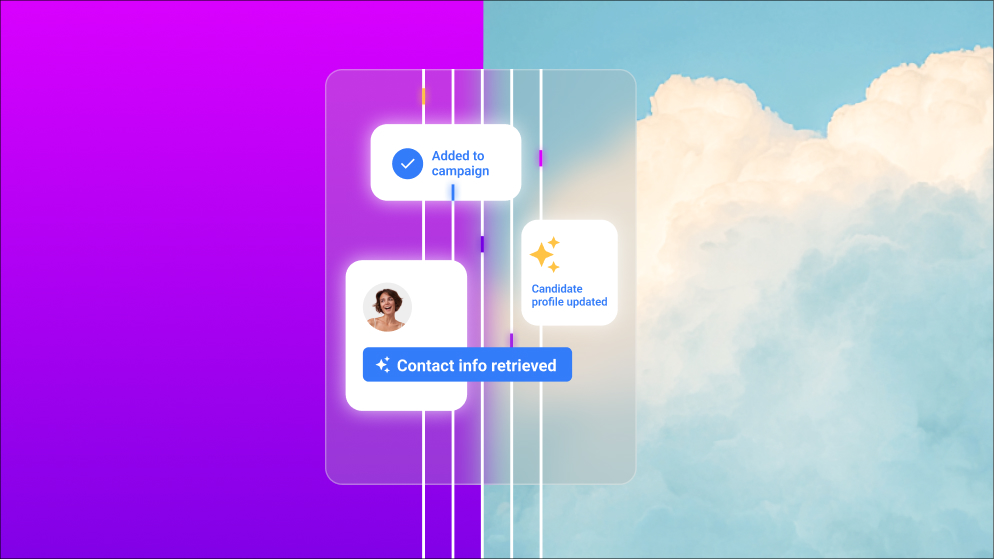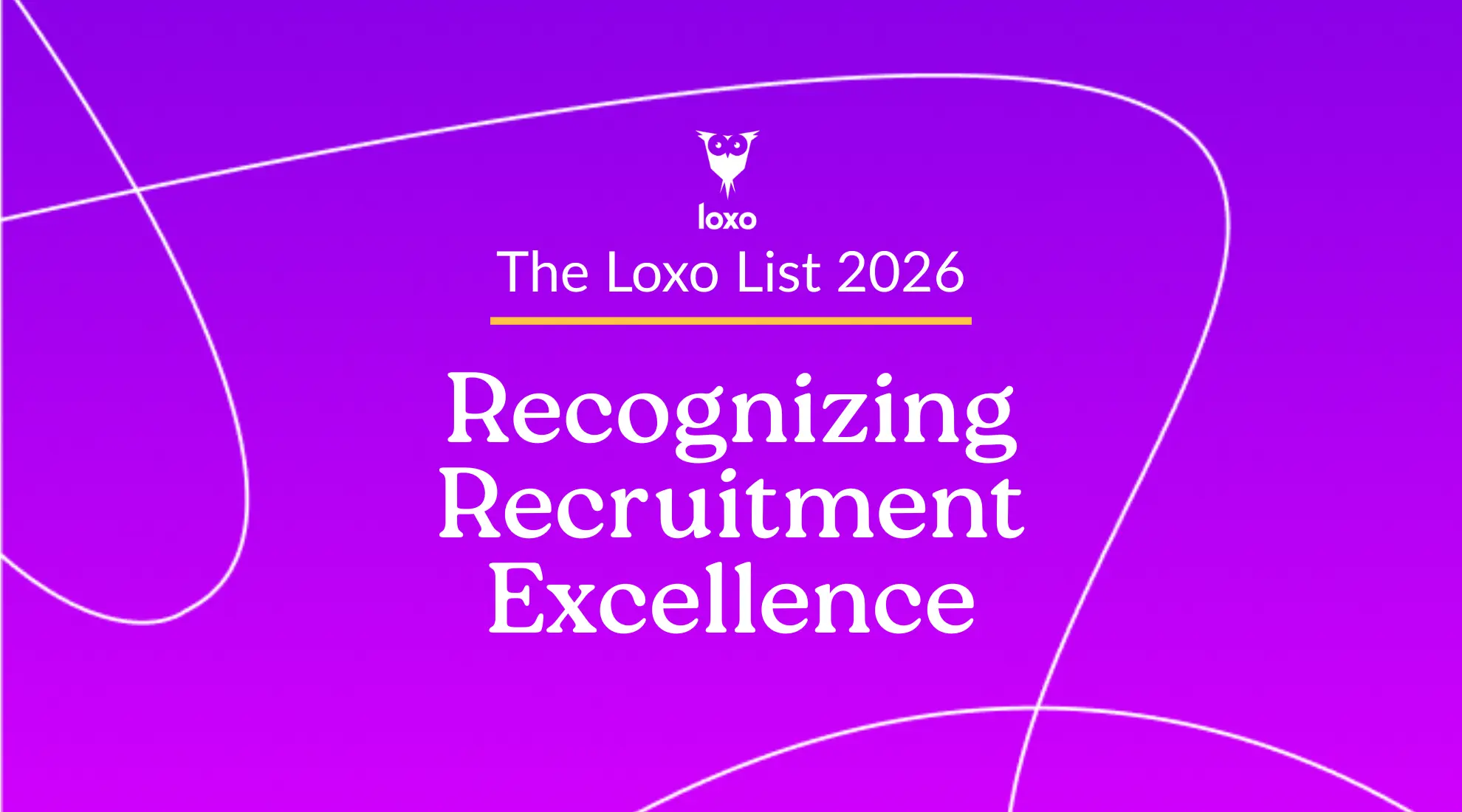There's no shortage of opinions, strategies, and frustrations when it comes to modern recruitment.
Mike Peditto — Director of Talent at Teal, The Realistic Recruiter on Instagram and TikTok, and host of the Corporate Pizza Party Podcast — has put in time on both sides of the fence, as an experienced recruiter, an internal hiring manager, and a candidate himself. (He's also a Top Golf Course Management Voice, but that's neither here nor there...)
We recently had Mike on our Becoming a Hiring Machine podcast — check out his episode here — to chat through the current state of the recruitment landscape and how he's found his voice in this (extremely noisy) conversation. From debunking hiring myths to humanizing the rejection process, Mike offered so many valuable insights (ones that will resonate with both job seekers and recruiters alike) that we decided to break out a few of those here.
Debunking Common Hiring Myths
Truth is relative, and I think we've all learned by now that data can be, too. If you're reading this, you've probably seen the notorious statistic claiming that 75% of resumes are rejected by machines before human eyes ever see them. This stat makes the rounds on social media on a near-weekly basis.
But where did this stat come from?
Mike sheds some light on the origins of this statistic, tracing it back to its roots in articles from resume writing companies. He did his research, and turns out: it started with a Forbes article that is very clearly paid media from a resume-writing company. The original stat, Mike traced back to another resume-writing company. Two sources who never cited their data — and who clearly stood to benefit from this stat being out there.This myth, perpetuated by the media and uncritical sharing, underscores the importance of fact-checking and critical thinking in the job search process.In a world where opinions often masquerade as absolute truths, Mike highlights the fallacy of such assertions. What seems like an absolute truth to one person may not necessarily hold validity for others. Whether it's misconceptions about hiring practices or the portrayal of job seekers and recruiters in social media posts, there are dangers associated with subscribing to narrow-minded viewpoints — and they can cause you to overlook potential paths to success in the process.
Mike emphasizes the importance of critical thinking and open-mindedness in navigating the complexities of the job market:
It's complicated, complex, and ever-changing.And while humans, by their nature, crave a black-and-white, "this is right" kind of solution — it often simply does not exist...
And those who claim it does are probably trying to sell you something.
The Role of Social Media in Modern Recruitment
Remember that aforementioned Top Golf Course Management Voice badge Mike has on his profile? He has it, on some level, to display the issue with where we're headed on social media platforms: Performative content by individuals who are more focused on building a brand than on solving a problem. AI content farming. A whole lot of noise.
As the discussion unfolded, it became clear that social media, once hailed as a valuable platform for professionals, has become inundated with superficial content and self-promotion. Mike lamented the decline of professional social media as a source of genuine advice and guidance for job seekers, noting the prevalence of clickbait headlines and attention-grabbing posts that offer little substance. He called for a return to authentic, helpful content and urged job seekers to seek out trusted sources of information.
So much content on social media, Mike says, is geared toward the poster themselves getting attention — not on actually helping job-seekers get a job. Because of this (and because of the whole there-are-no-absolute-truths thing) readers need to be critical when consuming this material, taking it with a grain of salt.
"Just ask yourself: The people making content, are they doing it to actually help and offer advice on their experience? Or just writing something they know people will engage with?" Mike says.
The fact is that social media prioritizes the things that get reactions and go viral. And sometimes the most "viral" posts are not the ones that are actually the most accurate or helpful.
Enhancing Candidate Experience Through Transparency
"You need to be finding advice of people you trust, while also understanding that advice isn't perfect either," Mike says. "I think that's the other issue with job searching and stuff on LinkedIn, is people want clear, perfect answers. And that just doesn't exist, because hiring is always going to be somewhat arbitrary."
When it comes to crowd-sourcing good advice, Mike's take is that it should be personal. Much more personal than one could receive from a viral LinkedIn post.Recruiters are well-accustomed with being the middle-man. But what does leveraging your knowledge of both the CANDIDATE and the CLIENT look like in practice? How do you help set candidates up for success with specific clients, based on the inside-scoop that you have? How can you help the candidate understand what it makes sense to emphasize?The "inside scoop" element is probably the best placeholder for "advice" a candidate could take. "I think it's worth it for candidates to listen to recruiters, because the recruiter does want you to get the job, right? That's how all of this works," Mike says. "Even if they're not your specific agent, they're working for the company, and they still want you to get that job. They're not giving you bad advice."
Turning Job Rejections Into Opportunities for Candidates
As an active TikTok personality, Mike has engaged with his fair share of online drama. He remembers a specific scenario that really got him riled up — and made him empathize with candidates even more.
One day, he saw a video from a well-known sales influencer, that said something to the effect of: I would never hire anyone who wrote a cover letter, because top people know they don't have to write cover letters.
Mike's instant reaction to this was:
Does your application have a section for a cover letters? Because if so, you're just walking people into a trap.
This is why job seekers are fed up. How are they supposed to know where to turn? How are they supposed to know what to do in the early stages of the process, when it seems like they're being punished for no reason at all?
Mixed signals
The resume vs. cover letter debate is a perfect example of how there is no "one" answer to any question.Mike debunks the notion that there's a one-size-fits-all template for crafting the perfect resume. Instead, he emphasizes the importance of focusing on impact and showcasing relevant skills and experiences. He stresses the need for clarity and conciseness in resumes, advocating for fewer words and more impact. Mike's insights challenge conventional resume wisdom by emphasizing the importance of tailoring each resume to the specific job and industry.
And what about cover letters? While some argue that cover letters are essential, others dismiss them as unnecessary (or even damaging, if you're the controversial sales influencer referenced above). Mike's pragmatic approach acknowledges the potential value of cover letters — while also acknowledging that their significance varies significantly depending on the recruiter or hiring manager.Sound familiar? It's all relative — and that's what makes today's market so difficult for job seekers to navigate.
Being considerate of what job seekers are up against is an easy win for recruiters....Especially those who are looking to genuinely build relationships and establish trust. A big part of that, Mike believes, is just being candid. Sharing what you know when you know something, and being honest and upfront when you don't. Maybe it doesn't have to be much more complicated than that.
The art of rejection
In perhaps one of the most overlooked aspects of recruitment, Mike delves into the delicate art of rejection. Contrary to the impersonal automated responses often employed, he champions a more humanized approach.
Recruiters always talk about how the path to success is by being human, developing genuine relationships, and building trust...But there are more stories about candidates getting ghosted than any one human could reasonably count.
Why does our humanity run out when we brush against the discomfort of rejection?
Isn't the most empathetic, relational, and human thing to do to be clear, offer feedback, and giving job seekers the information they need to confidently move onward and upward?
By personally sending rejection emails and offering constructive feedback, Mike underscores the importance of empathy and transparency in fostering positive candidate experiences. He shares practical strategies for delivering rejections with dignity and respect, thereby mitigating the emotional impact on job seekers.
Leveraging Technology for Efficient Recruitment
Recognizing the pivotal role of technology in recruitment, Mike advocates for leveraging tools such as a Recruitment CRM to streamline processes and enhance authentic candidate engagement.
He emphasizes the importance of leveraging data effectively to nurture talent pools for future opportunities. By harnessing the power of technology, recruiters can optimize their workflow and deliver a seamless candidate experience. This approach not only improves efficiency, but also enhances the overall recruitment strategy by allowing for better tracking of candidate interactions and more personalized communication.
Wrapping up
Mike's insights offer a refreshing perspective on the intricacies of job seeking and recruitment. Where others spout hot takes to drive engagement, Mike is keeping it real — even when that means not giving the clear black-and-white answer he knows viewers/listeners/humans-in-general crave.
Through humor, empathy, and pragmatism, Mike encourages both job seekers and recruiters to navigate the ever-changing job market with resilience and authenticity. As such, he's built a following of like-minded individuals who are fed up with the noise and want to find reasonable ways to grow and succeed.At the end of the day, it comes down to this:
As job seekers and recruiters alike attempt to navigate the ever-changing landscape of the job market, critical thinking and discernment will be invaluable assets in separating fact from fiction.
Before you go: Don't forget to check out Mike's episode of our Becoming a Hiring Machine podcast.
Ready to shape the future?
Your job is placing the best talent in the roles that will define their careers, their lives, and our future. Our job is making it easier for you to do it.



.png)

